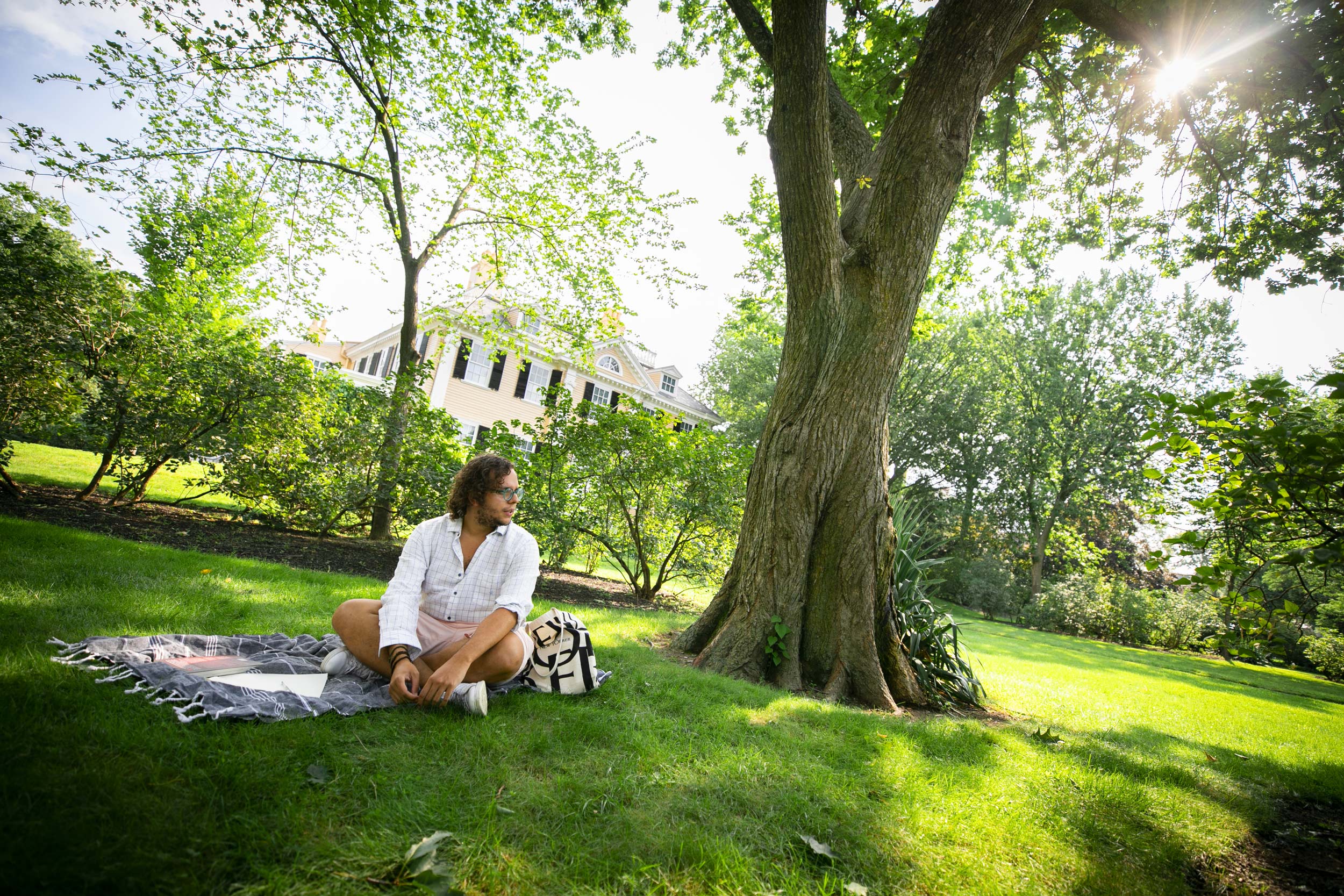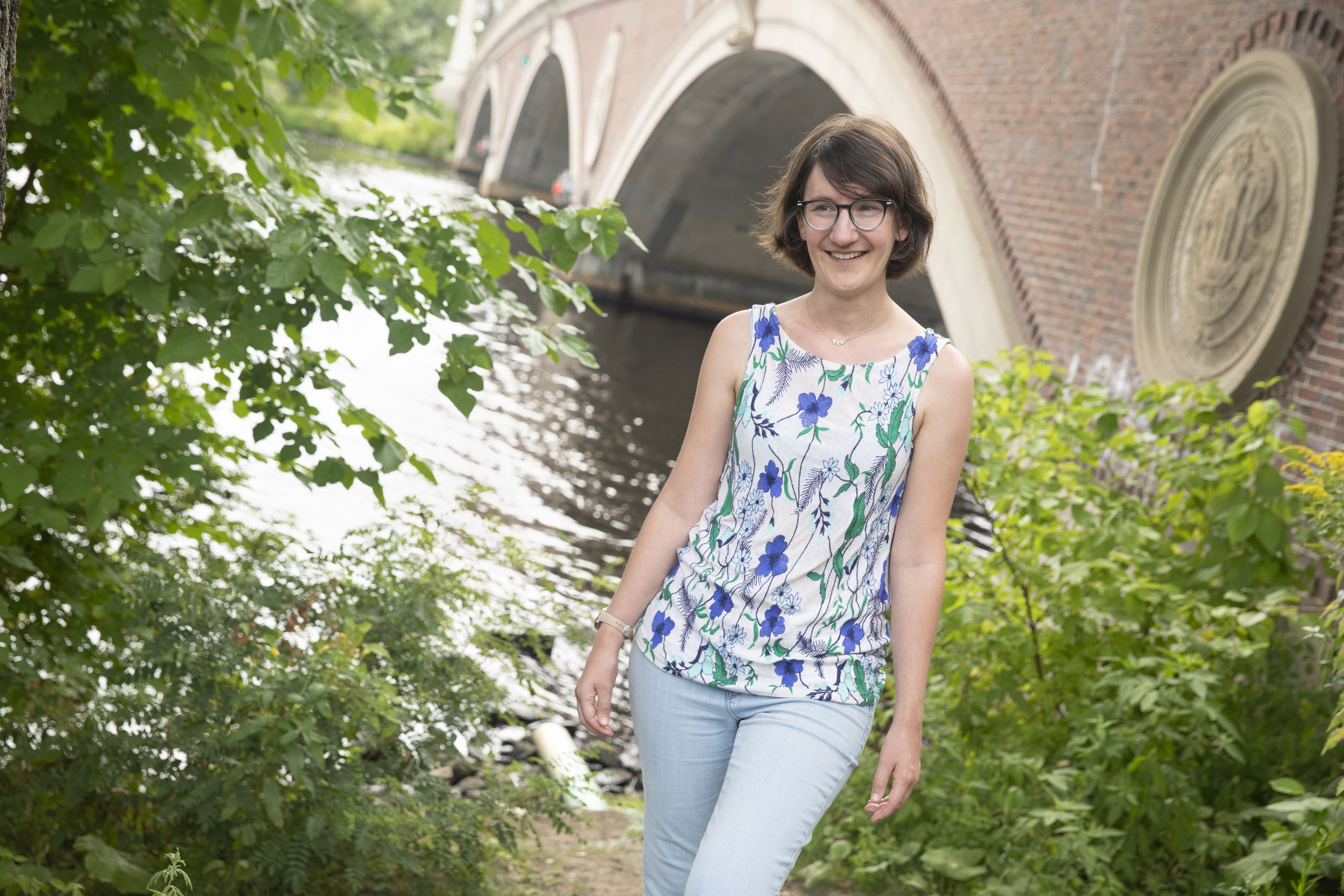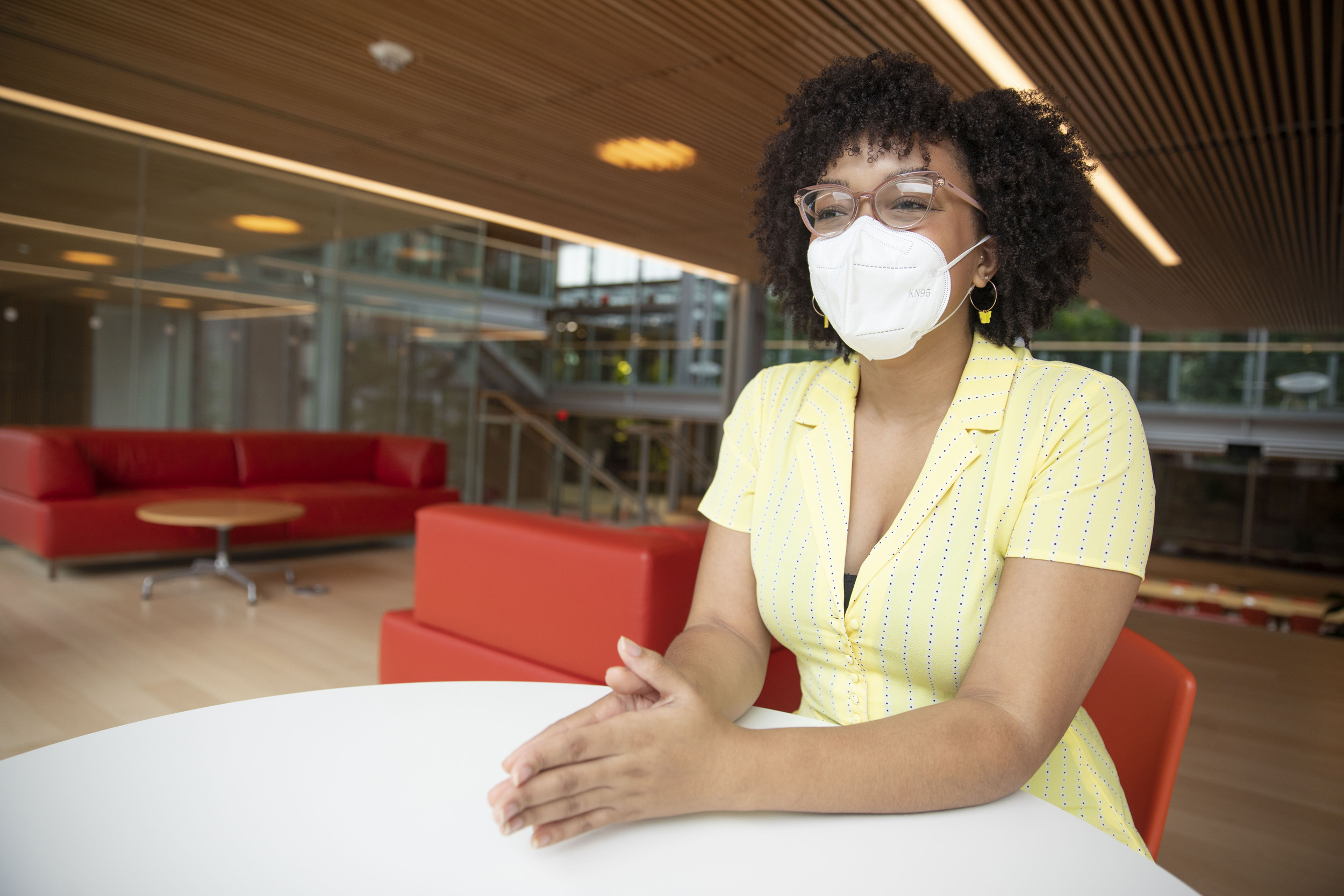
“I needed somewhere that would be quiet and beautiful,” said João Marcos Copertino, who discovered the grounds of the Longfellow House on Brattle Street.
Stephanie Mitchell/Harvard Staff Photographer
Far from the madding crowd
It’s been a fruitful summer for those seeking a special spot to write and think
João Marcos Copertino spent a lot of time reading and writing outside while growing up in Brazil. When he got to Cambridge, he wanted to replicate that experience — weather permitting, of course.
“I needed somewhere that would be quiet and beautiful,” away from the stress he sometimes feels in the stacks of Widener Library, said the doctoral candidate who studies history of emotions in Iberian and Latin American societies between the 19th and 20th century. It turned out he didn’t need to go far.
Copertino is one of countless students, faculty, staff, and affiliates who spent their summer in courtyards, hallway alcoves, cafes, and library stacks around Cambridge and Boston, working on their writing. The pandemic created unusual circumstances in which they could take advantage of the relative quiet of campus to delve deep into their research and pursue their craft. As Harvard begins its full reopening for faculty and students, those quiet moments are even more precious, with the added anticipation of a new semester among colleagues and friends once again.
Copertino’s search for a special space started on a walk from Harvard Yard and to the lawn of the Longfellow House-Washington’s Headquarters National Historic Site on Brattle Street. The tree-studded gardens gave Copertino a tranquil place to read, write, and contemplate life in all its forms.
“Humans often want to identify ourselves as different from everything else in nature, but when I’m in the garden, I feel like I’m being part of nature,” he said, describing the joy of touching grass, feeling the sun on his face, and even getting bitten by mosquitoes, which reminds him of the vulnerabilities of living in one’s environment.
On regular visits to the grassy spot, Copertino leaves his computer at home to avoid distractions, and brings books, pens, and lined paper to invite spontaneity and ingenuity.
“When I’m writing outside, I’ll sometimes start drawing, or I’ll read something that isn’t for my work and it will blend together with whatever I’m working on,” he said. “That blank page can bring some creativity.”

Sharon Cornelissen uses walks along the Charles River to inspire her writing.
Kris Snibbe/Harvard Staff Photographer
Sharon Cornelissen was drawn to the natural world as an inspiration for her work. The postdoctoral fellow at the Joint Center for Housing Studies is writing a book based on her doctoral dissertation on depopulation and gentrification in Detroit, and uses her walks along the Charles River as a way to jump-start her imagination.
“I’m trying to craft scenes in my book that are very evocative for people, even for people that have never been to Detroit, so there’s a lot of time that goes into beautiful writing, so sometimes I need to step away from my desk to think through my writing,” she said. “My office [on Bow Street] is a short walk away from the Charles River, and it’s very refreshing. It gives me a lot of perspective.”
Cornelissen also spends her walks considering the connections between her scholarship and her lived experience.
“In Detroit, where houses had been demolished nature was germinating, and there were a lot of turkeys, deer, and wildflowers. So it was a green place, even though it was a declining place,” she said.
Returning to campus after many months away and spending time in green spaces nearby, she added, “is a reminder of how privileged we are to be in this place.”
A few blocks from Cornelissen’s office, Kristian Hardy ’24 spent her summer exploring pockets of campus that have been slowly reopening to Harvard affiliates and looking for spaces to work on projects with the Harvard ArtLab as a summer SHARP research fellow. She came upon the Smith Campus Center while looking for powerful air conditioning, and returned regularly to enjoy the music, calm, and view onto Holyoke Street and Farkas Hall, a vital home for campus theater that has been closed to most community members since March 2020.

For Kristian Hardy ’24, the Smith Campus Center’s air conditioning was a big draw this summer.
Kris Snibbe/Harvard Staff Photographer
For Hardy, who is pursuing a joint concentration in Theater, Dance & Media and African & African American Studies, being close (but so far) from that creative space has given her something to look forward to as fall approaches.
“I was on campus last school year, but with COVID restrictions and everything, I haven’t actually been able to go inside Farkas, which is so painful as a theater nerd,” said Hardy, who is from Blythewood, S.C., and lives in Dunster House. “I just stare at it imagining when I’ll be able to go inside and create again. It’s kind of inspirational in that regard.”
With a summer of exploration under her belt, she is looking forward to returning to Smith this fall as a newly minted sophomore — and experiencing other Harvard buildings in person for the first time.
“I’m a really big energy person, and the space that I’m in will definitely influence my productivity,” said Hardy. “Having different spaces allows students to have the freedom to go wherever they feel best contributes to being the best student or writer they can be.”




